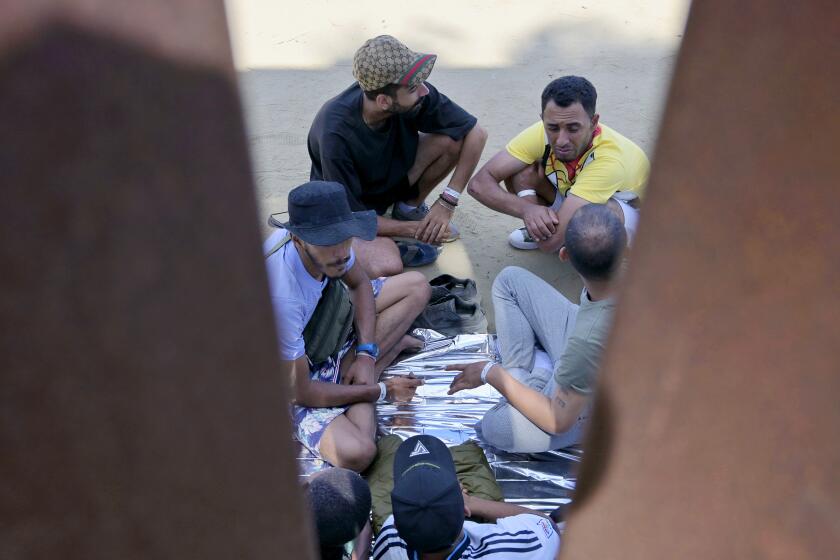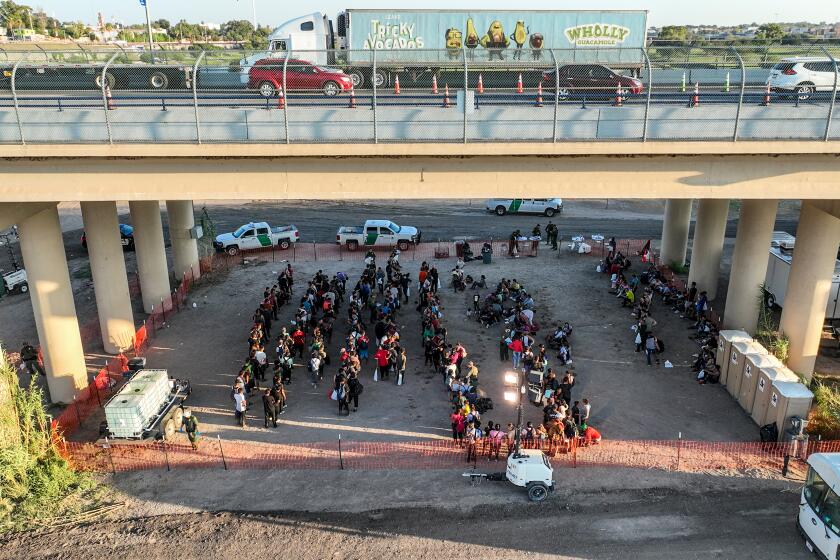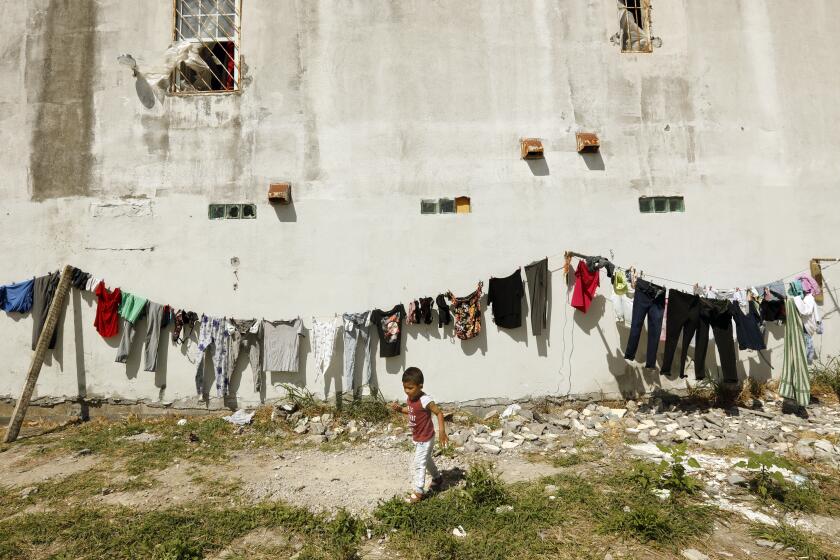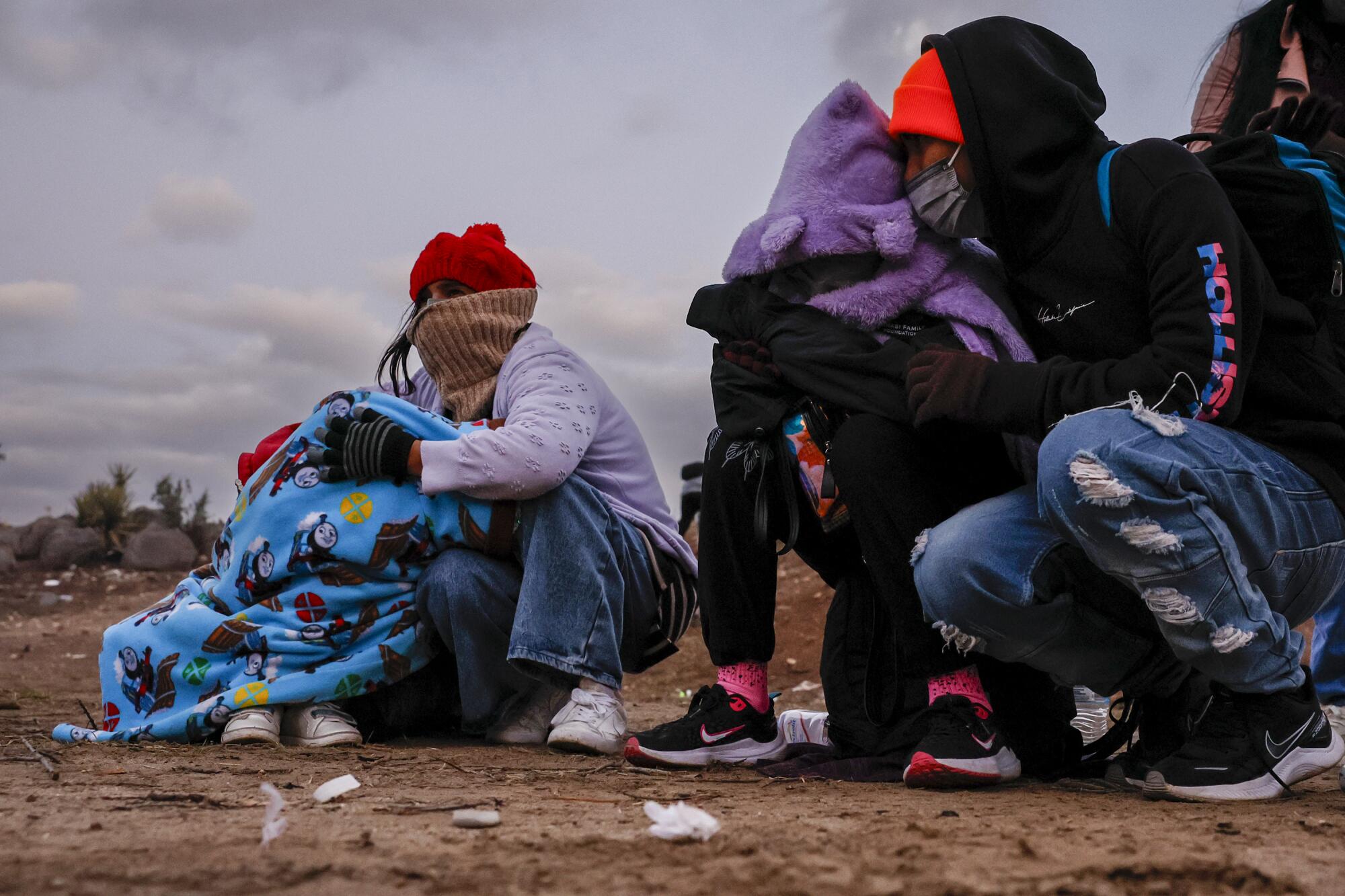
- Share via
WASHINGTON — Nearly 1,100 migrant families have been separated while being processed at the U.S.-Mexico border near San Diego since September, immigrant advocacy groups said in a letter sent Thursday to the Department of Homeland Security that seeks an investigation into the matter.
The separations stem from U.S. Customs and Border Protection’s ongoing practice of releasing high volumes of migrants to street locations around San Diego County without coordinated reception plans, according to the UCLA Center for Immigration Law and Policy and three other groups that signed the letter. As migrant arrivals at the California-Mexico border have increased, Customs and Border Protection has turned to street releases and holding migrants between border walls to reduce the number of people in its short-term facilities.
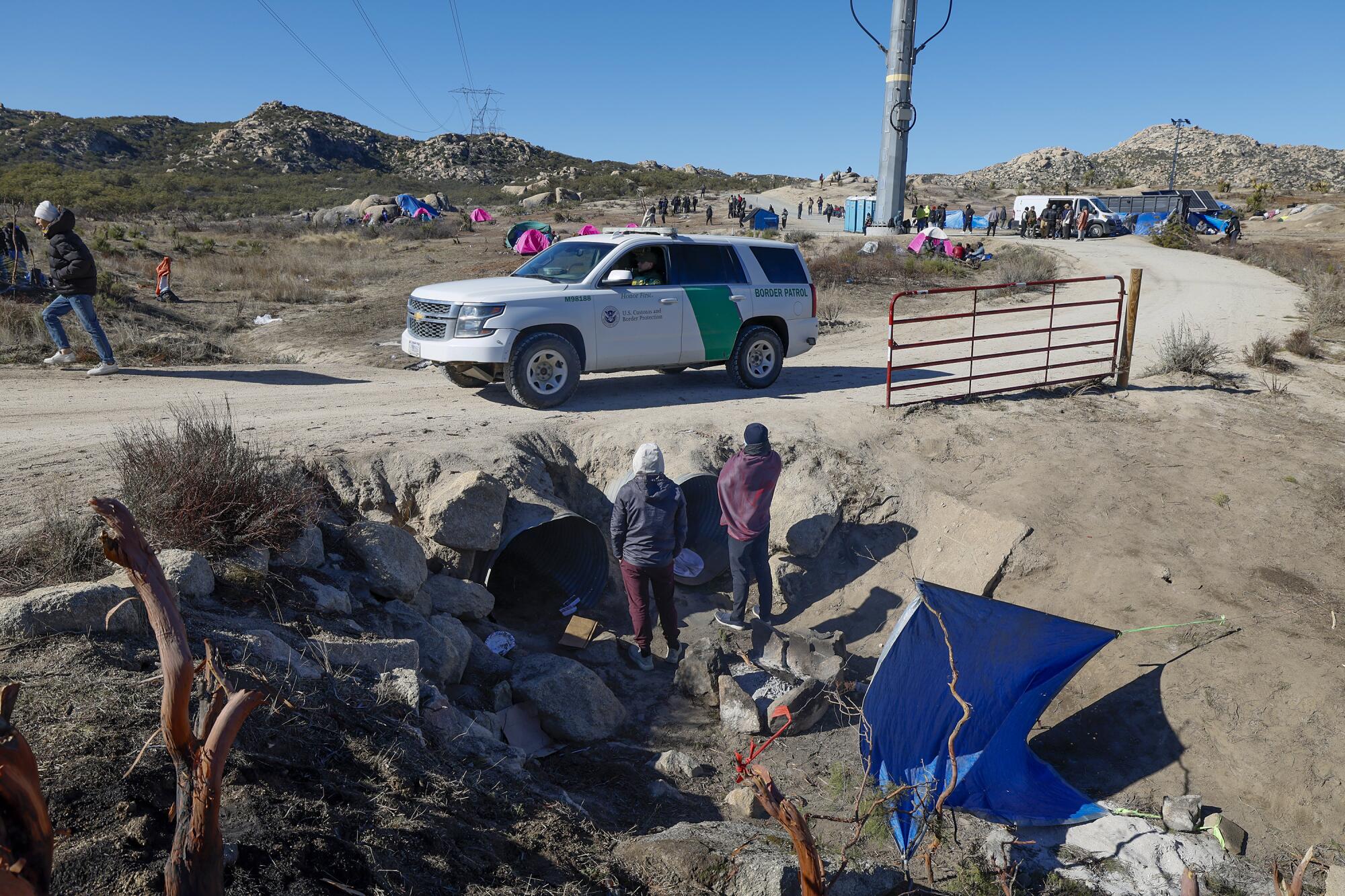
According to the letter, immigration law group Al Otro Lado documented 1,081 family separations among the hundreds of migrants it serves each day at a border welcome center in San Diego, where it provides legal aid and translation services. Of that total, there were almost 400 separations of spouses and about 200 separations of adult children from the parents they were traveling with, including 43 children between age 18 and 21. Separations of those in other family relationships, such as adult siblings, cousins and common-law partners, make up the remainder of the total.
In at least 39 cases, families remained separated after one or more members were transferred to long-term immigrant detention facilities. In at least two cases, one family member was deported while the others remain in the U.S.
Customs and Border Protection did not immediately respond to a request for comment on the letter.
Immigrant advocates’ letter to the Department of Homeland Security requesting investigation of family separations at border near San Diego.
“The trauma families experience during the periods of separation is compounded by CBP’s lack of communication and the near-total opacity of their practices,” states the letter to the Department of Homeland Security’s office of civil rights and civil liberties, which was also signed by the ACLU Foundation of San Diego and Imperial Counties, and Jewish Family Service of San Diego.
To prevent further separations, the organizations are asking Homeland Security to broaden the definition of a family group under agency practice to include parents with adult children, couples without marriage certificates, adult siblings and extended family members. The groups are also asking that Homeland Security agents document all relationships among family groups and ensure families are released together, or to communicate the whereabouts of any family members that aren’t released at the same time.
With more Border Patrol buses expected to drop off migrants at San Diego trolley stops over the next few weeks, the federal government is leaning into controversial tactics to lower the number of people held in Border Patrol stations along the border.
The letter comes after a federal judge in San Diego approved a court settlement last week that bars widespread separations of parents from their underage children at the U.S.-Mexico border for the next eight years. The settlement stems from a 2018 ACLU lawsuit over the separations, including those that took place under the Trump administration’s “zero tolerance” policy that led to the prosecutions of migrant parents who crossed the border without authorization.
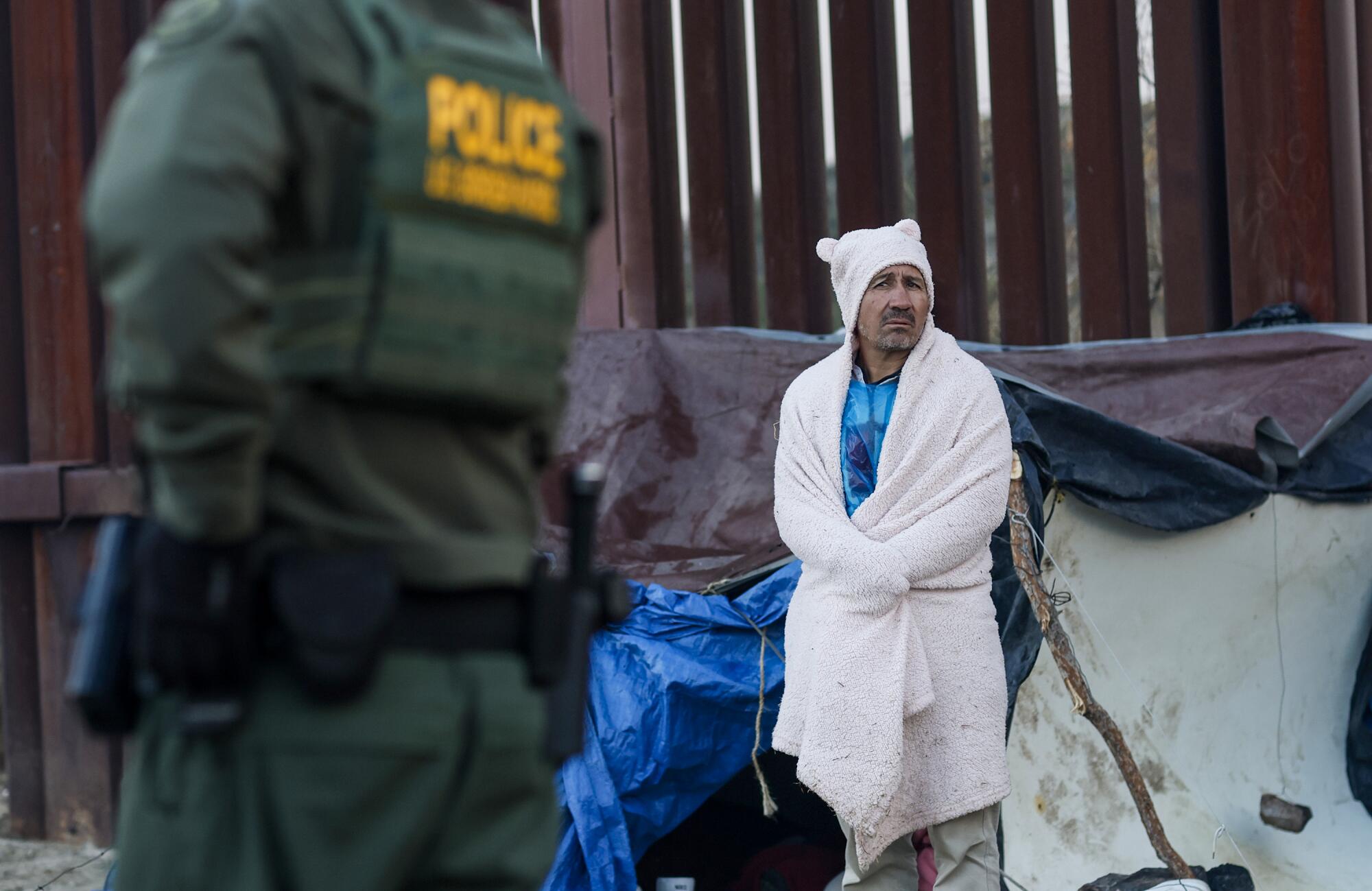
The settlement doesn’t affect family separations like those documented by Al Otro Lado, which the group believes are undercounted.
An April 20 Customs and Border Protection memo obtained by The Times, which offers guidance on processing family groups, states that Homeland Security is “committed to protecting the unity of families encountered at the border to the extent legally and operationally feasible.”
The guidance included in the memo pertains to parents or guardians with unmarried adult children up to age 25, grandparents with unmarried adult grandchildren up to age 25 and spouses and unmarried adult siblings up to age 25. Agents are required under the guidance to consider any verifiable documentation acknowledging such relationships and to link those individuals as a family group, with the goal of processing them out of custody together.
“If the guidance truly is in furtherance of CBP’s stated commitment to maintaining unity of families, then in practice it should be implemented in a way that allows for families to report and have documented their relationships in accordance with the realities of people who are forced to flee their countries,” said Monika Langarica, an attorney with the Center for Immigration Law and Policy at UCLA.
A deal between Biden and ACLU would prevent the federal government from using prosecutions of adults in the U.S. illegally to separate them and their kids.
Most separated families said they had informed Customs and Border Protection that they were traveling in a family group, according to the letter, but families were rarely told they would be separated or how to locate their relatives.
In October, Customs and Border Protection detained nearly 30,000 migrants near San Diego, up from nearly 18,000 in October 2022, according to agency figures.
Meghan Zavala, data and policy analyst for Al Otro Lado, said these kinds of separations aren’t unique to San Diego.
But Priscilla Orta, a supervising attorney at Brownsville, Texas-based Lawyers for Good Government, which provides legal aid to migrants, said separations aren’t common in the Rio Grande Valley of Texas, noting that Customs and Border Protection drops people off at designated locations. Few migrants stay overnight because even if family members are processed separately, there is little delay before they reunite at a welcome center. Spouses are often processed together, she said.
Families seeking asylum are finding themselves confronted with a seemingly impossible decision: Wait indefinitely for enough appointments to open up for the whole family through a new mobile app, or split up.
“If you came here you’d have absolutely no idea that thousands of people were processed daily,” Orta said. “There’s zero chaos.”
Just under half of the families recently separated at the border near San Diego are from Colombia, with smaller numbers from China, Brazil, Afghanistan and Peru, according to Al Otro Lado. Some separations have lasted hours or days, while others documented by the organization have lasted more than a month.
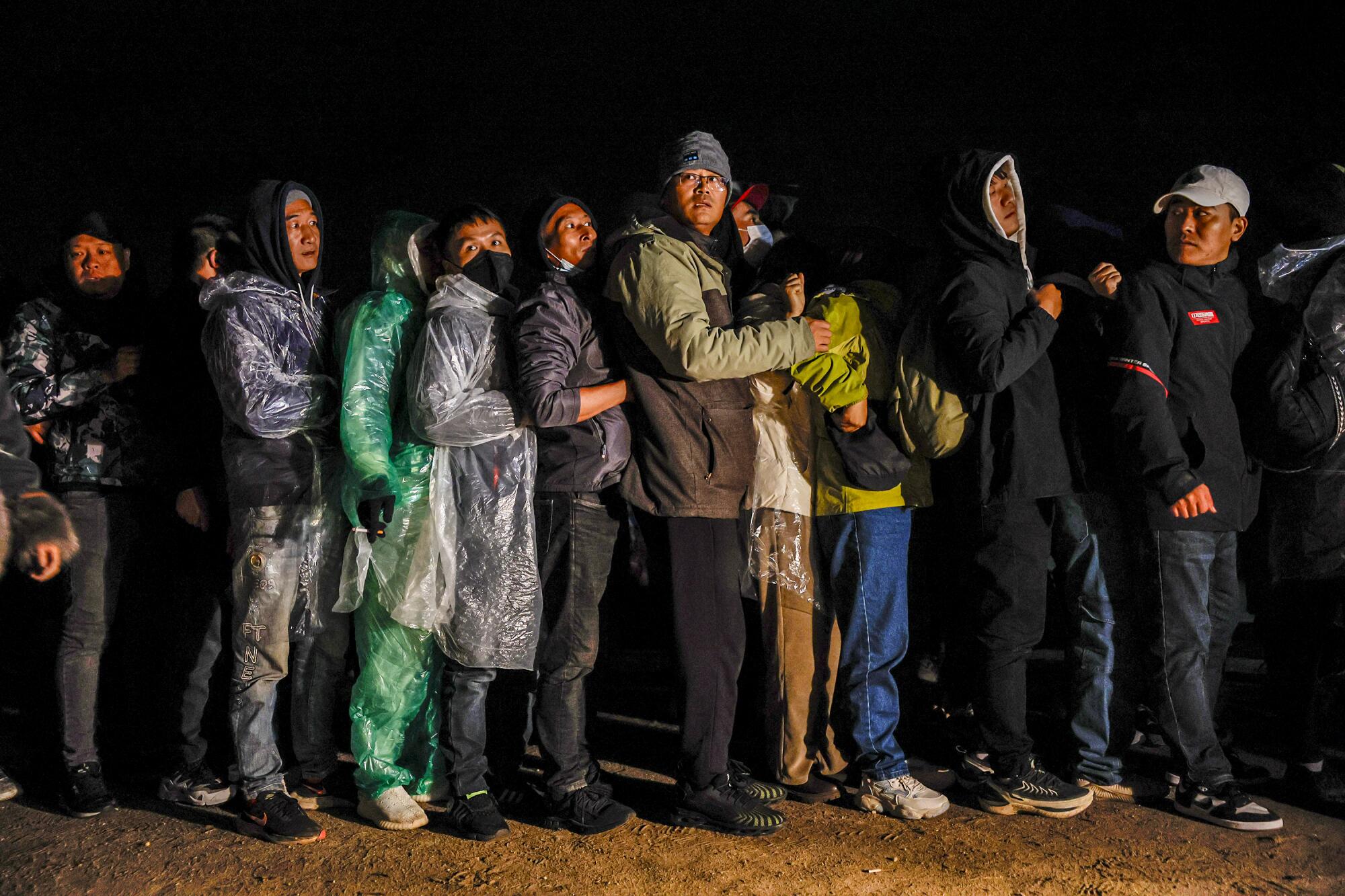
Separations involving families who speak languages other than Spanish are particularly difficult, causing advocates to scramble to find interpreters, Zavala said. Some families spend days in crowded San Diego shelters waiting to see whether their relatives will be released, she said.
“Our organization along with others continue to be very strained in our capacity and yet are given all these additional hurdles,” Zavala said. “We try to do our best to get information for these families who are quite desperate to know where the person they were traveling with is now being held.”
Migrants forced to stay in Mexico by Trump remain separated from children in the U.S. under Biden
In one case documented by Al Otro Lado, a husband and wife from Colombia were taken into Border Patrol custody in September. The husband was released just across the border from Tijuana in San Diego’s San Ysidro district without his wife, who had been transferred to a detention facility in Louisiana and was deported before she could speak with a local attorney.
In another case, a husband and wife were separated during Customs and Border Protection processing. The husband was released without his wife at the San Ysidro Transit Center and returned to the center for weeks, hoping to find her. He later learned she had been transferred to a U.S. Immigration and Customs Enforcement facility in Texas, where she experienced medical complications. They were separated for 49 days.
Julieta, 38, who asked that only her first name be used out of fear for her safety, told The Times she arrived in Tijuana from Colombia with her 19-year-old son.
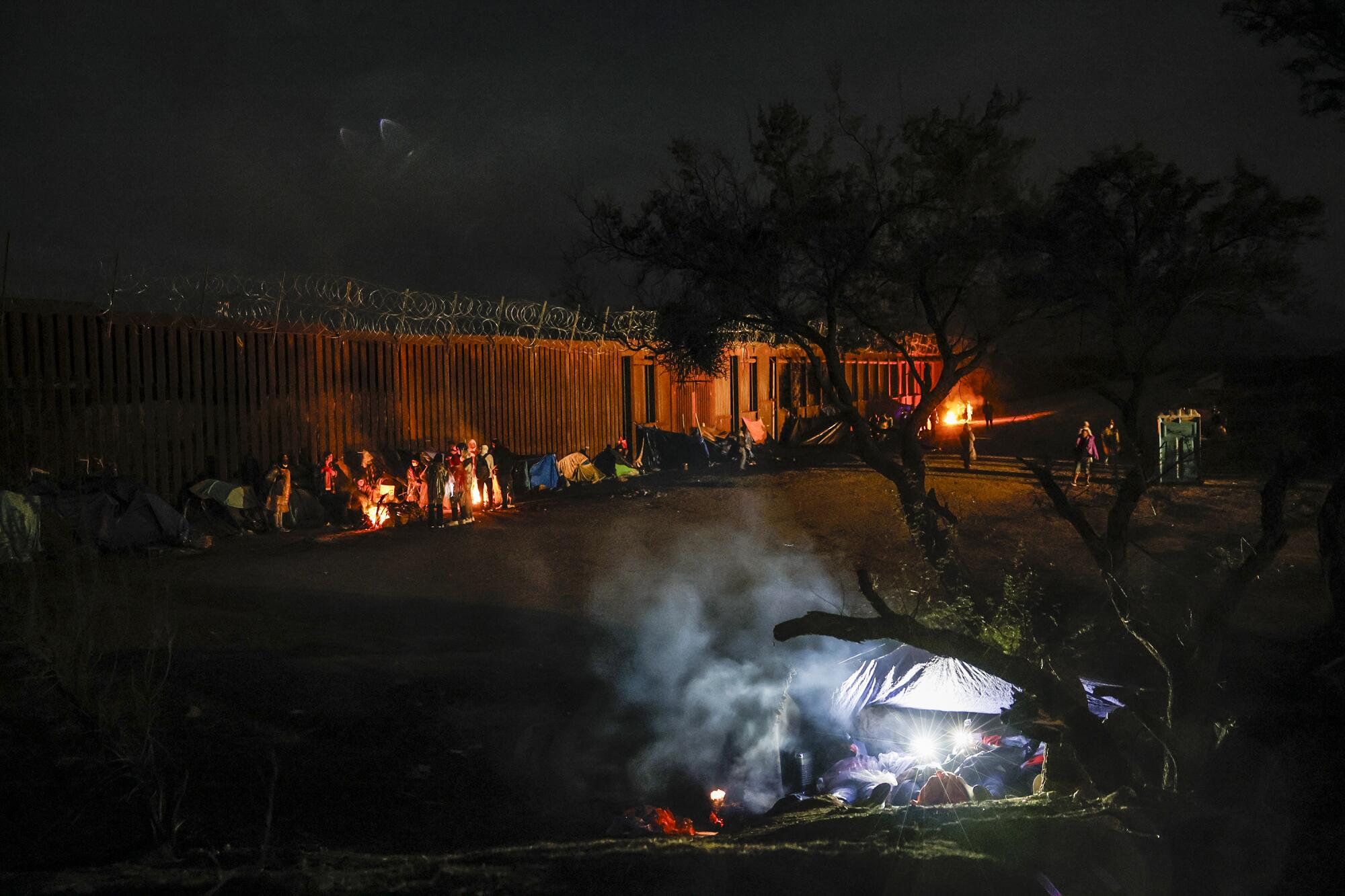
She said they turned themselves over to border agents on Nov. 22. Two days later, she was led to a bus and dropped off at a shelter, with no idea as to her son’s whereabouts.
Five days after that, Julieta’s son was dropped off at the same shelter and they reunited. She said she knew they would be detained at the border, but didn’t anticipate that they would be separated.
“It’s hell,” she said. “Not knowing if your son is safe, if he is alive, if something happened to him. All you can do is pray to God.”
More to Read
Get the L.A. Times Politics newsletter
Deeply reported insights into legislation, politics and policy from Sacramento, Washington and beyond. In your inbox twice per week.
You may occasionally receive promotional content from the Los Angeles Times.
